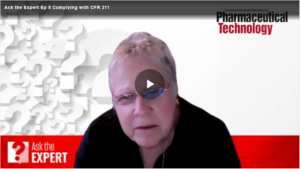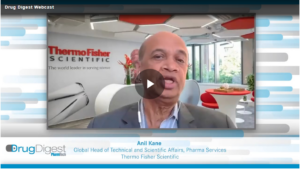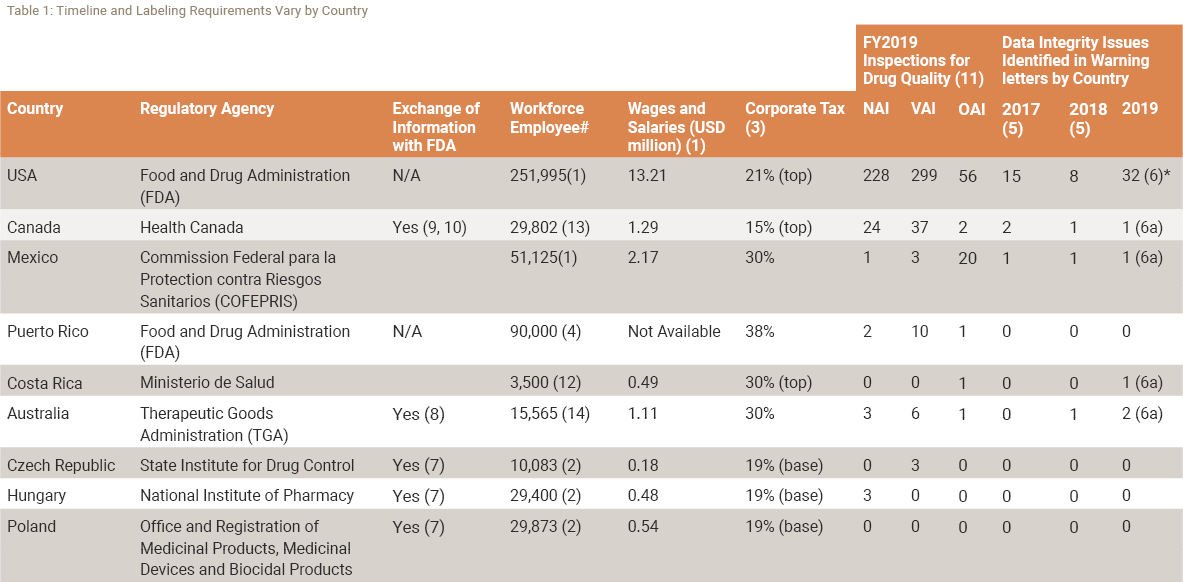Experts share insights on what the future may hold regarding biotech quality, regulatory requirements and quality standards for biotechnology industry.

The biotech industry has experienced significant growth in recent years. These complex therapies have evolved, and with this evolution comes new challenges in ensuring the quality of these products and the safety of the patients that use them. Quality regulations, and industry, may have to continually adapt to address these challenges.
To gain perspective on what the future quality standard holds for biopharmaceuticals and how the industry and regulators will address quality going forward, BioPharm International spoke with Anthony Newcombe with PAREXEL and Susan Schniepp at Regulatory Compliance Associates (RCA).
Quality Standards
BioPharm: With the fast development of the biopharmaceutical industry over the past 30 years, how have quality regulations adapted to address the complex nature of biologics?
Newcombe: Over the past 50 years, the industry has grown, especially due to advances in areas such as recombinant DNA and hybridoma technology, and more recently gene and cell therapies. As these advancements have occurred, new quality regulations have been developed to address the complex nature of biologics with specific quality requirements associated with viral safety, expression constructs, product characterization, and comparability.
Regulatory & Regulation
BioPharm: Are there regulatory guidelines in development for ensuring the quality of biologics in the future?
Newcombe: There is no indication that the current, published quality guidelines would not ensure the quality of biologics in the future, but it’s likely that regulatory guidance documents will continue to be revised and updated over time to adopt industry best practices and new technologies, for example the draft International Council for Harmonization (ICH) Q12 and the revised EudraLex Annex 1.
Biotech Consultants
BioPharm: Do Biotech consultants foresee science outpacing quality regulations?
Schniepp (RCA): I think science has already outpaced quality regulations. An example is the applicability of pharmacopeial methods for product testing. Many monographs utilize traditional high-performance liquid chromatography (HPLC) for testing.
Companies have migrated to ultra-high-pressure liquid chromatography (UHPLC) and other sophisticated methodology, thereby rendering compendial monographs obsolete. By the time updates are made to the pharmacopeias to capture the current technological advancements, more sophisticated equipment and methodologies are being introduced.
The industry seems to be moving toward a continuous monitoring where results regarding product quality can be achieved in real-time. The current processes used to update procedures, systems, and filings may not be able to keep pace with the rapid introduction of technological advances. I don’t think this is new.
Science has always outpaced quality regulations. When dissolution testing was introduced, it took a while for that technology to be widely accepted. I think this phenomenon is more of an issue today than in the past because science innovations are occurring at a much more rapid pace and affecting all aspects of the drug product lifecycle than 20 years ago. This rapid advancement of technology makes it harder for the quality regulation to catch up.
Newcombe: Quality regulations ensure that biopharmaceuticals are safe and effective, and in my opinion, are generally not driven by the pace of scientific advances. However, new quality regulations are likely to be required to keep up with the development of new advanced therapies, including gene and cell therapy and tissue engineering.
Some of these are autologous products using a patient’s own blood components and personalized medicines can present additional manufacturing, compliance, and regulatory challenges.
Quality Control
BioPharm: How do you see the role of the quality control (QC) unit changing versus the current quality standard?
Newcombe: I would not anticipate any significant changes to the role of the QC unit in the coming years. QC laboratories currently undertaking release testing for approved biologics using validated methods are unlikely to change their existing role significantly. There may also be a general reluctance to implement new analytical technologies used for testing of approved products due to potential regulatory impact with a continued reliance on established analytical methods.
Schniepp (RCA): I think the quality unit will evolve to be a more hands-on review of the product attributes. The quality unit will need to be equal partners with manufacturing to be able to release product quickly and solve deviations and investigations in a timelier manner than we are experiencing today. Complete investigations will still need to be performed. They will just need to be done quicker depending on the nature of the product.
Traditionally, the quality unit has reviewed the results of the manufacturing process after the work has been completed and the batch has been packaged. To keep pace with the new quality standard of products being developed by biopharma, the quality unit may need to be releasing product, performing investigations, and initiating changes in real time. This requires agile and flexible processes and systems that can keep pace with advancements.
The quality professional of the future may need to have a solid basis in science to be able to meet the demands of manufacturing. They will need to be able to quickly ascertain how a proposed change or deviation could affect the functionality and quality of a product, which will require an intimate understanding of the manufacturing and science associated with the product. To keep pace with the future, quality must be imbedded in the process and not just as the final approver for product release.
Biotech Manufacturing
BioPharm: What quality control challenges do you see developing for biopharmaceutical manufacturing
Schniepp (RCA): Quality control to me is the testing that is associated with determining if the product meets critical parameters throughout the manufacturing process and at release. The question is: Do we have the correct equipment, tests, and sensitivity to accurately assess the quality of products being developed today, and how will we deal with these intricacies as we advance more and more toward personalized medicines?
This concept should extend beyond the product testing and be assessed for the environmental support testing as well. Determining the proper tests and environmental controls as the industry moves forward will require new and novel thinking.
Newcombe: Recent data integrity requirements and guidelines have had an impact on data management within QC laboratories. This may present challenges for some organizations associated with the collection, processing, reviewing, and reporting of data and ensuring the accuracy and consistency of analytical results. The access and management of data stored on electronic systems within the QC laboratory is also likely to present continued challenges.
Article Details

BioPharm International
Vol. 31, No. 7
Pages: 16-20
Regulatory Compliance Associates (RCA) has helped thousands of pharmaceutical companies meet regulatory, compliance, quality assurance, and remediation challenges. With more than 20 years of experience with FDA, Health Canada, EU and global regulatory agencies worldwide, Regulatory Compliance Associates® offers leading pharmaceutical consultants. We’re one of the few pharma consulting companies that can help you navigate the challenges associated with industry regulations.
Our pharmaceutical consulting firm includes over 500 seasoned FDA, Health Canada & EU compliance consultants and regulatory affairs experts who understand industry complexities. It’s a pharma consultancy founded by regulatory compliance executives from the pharmaceutical industry. Every pharmaceutical industry consultant on the Regulatory Compliance Associates team knows the unique inner workings of the regulatory process.
Client Solutions
Whether you’re in the product planning, development or pharmaceutical lifecycle management stage or need a remediation strategy for a compliance crisis, Regulatory Compliance Associates will guide you through every pharmaceutical consulting step of the regulatory process and create a customized approach depending on your product and your pharma company’s individual needs. Our regulatory compliance clients include:
- Companies new to FDA, Health Canada or EU regulations and regulatory compliance
- Start-up organizations with novel submissions to 510(k) submissions from multi-national corporations
- Investment firms seeking private equity due diligence for pre-acquisition and post-deal research
- Law firms seeking pharmaceutical consulting firm expertise in the remediation of warning letters, consent decrees, 483’s or import bans
Regulatory affairs is Regulatory Compliance Associates backbone. We exceed other pharma consulting companies with industry experts experienced in complexities of the pharmaceutical and biopharmaceutical industries. Our pharma consulting expertise spans all facets and levels of Regulatory Affairs, from Regulatory Support for New Products to Life Cycle Management, to other services like Outsourced Regulatory Affairs, Submissions, Training, and more.
As your partner, we can negotiate the potential assessment minefield of regulatory compliance services with insight, hindsight, and the clear advantage of our breadth and depth of knowledge and regulatory compliance consulting. We offer the following pharma consulting regulatory affairs services for pharmaceutical companies.
- New Product Support
- Product Lifecycle
- Other Regulatory Services
- Combination Products
The regulations process surrounding pharmaceutical companies can be tricky for even the most experienced industry veteran to understand. Just one misstep could mean significant and lasting consequences for your business. At Regulatory Compliance Associates, we offer the pharma consulting experience and pharma consultants necessary to guide you through the quality compliance process.
- Assessments
- Audits
- Regulatory Agency Response
- Preparation and Training
- Inspection Readiness
- Data Integrity
Regulatory Compliance Associates Quality consulting includes assessments, strategy, implementations, staff augmentations, and identification of quality metrics to ensure continuous improvement. Our pharma consultants understand the strategic thinking needed to align your business needs and goals. Regulatory Compliance Associates quality assurance services include quality experts with experience spanning major corporations and start-ups. Our pharmaceutical consulting firm knows firsthand how to achieve, maintain, and improve quality, and we excel in transferring pharma consulting knowledge to your organization.
- 21 CFR Part 11
- Data Integrity
- Manufacturing Support
- Facility Support
- Quality Metrics
Regulatory Compliance Associates has a proven remediation services approach to managing FDA Warning Letters, Consent Decrees, Remediation and other serious regulatory situations. Our pharma consultants know how to partner with executive, legal, and communication teams. Each RCA pharma consulting Expert will develop a response that will be accepted by the regulatory agency and be realistic to execute.
Regulatory Compliance Associates pharma regulatory consultants will develop a comprehensive proof book of documented evidence demonstrating the corrective action taken to remediate non-compliant issues. In addition, each Regulatory Compliance Associates pharma consulting Expert understands compliance enforcement. We’ll prepare a comprehensive pharma consulting strategy to assist in your remediation efforts, drive continuous improvement, and maintain regulatory compliance with the regulations.
- Regulatory Action
- Regulatory Compliance
- Regulatory Enforcement
- Warning Letter
- 483 Observation
- Oversight Services
- Risk Management Plan
About Regulatory Compliance Associates
 Regulatory Compliance Associates® (RCA) provides pharmaceutical consulting to the following industries for resolution of life science challenges:
Regulatory Compliance Associates® (RCA) provides pharmaceutical consulting to the following industries for resolution of life science challenges:
We understand the complexities of running a life science business and possess areas of expertise that include every facet of R&D, operations, regulatory affairs, quality, and manufacturing. We are used to working on the front lines and thriving in the scrutiny of FDA, Health Canada, MHRA and globally-regulated companies.
As your partners, we can negotiate the potential minefield of regulatory compliance and regulatory due diligence with insight, hindsight, and the clear advantage of our unique expertise and experience.
- Founded in 2000
- Headquartered in Wisconsin (USA)
- Expertise backed by over 500 industry subject matter experts
- Acquired by Sotera Health in 2021
About Sotera Health
The name Sotera Health was inspired by Soteria, the Greek goddess of safety, and reflects the Company’s unwavering commitment to its mission, Safeguarding Global Health®.
Sotera Health Company, along with its three best-in-class businesses – Sterigenics®, Nordion® and Nelson Labs®, is a leading global provider of mission-critical end-to-end sterilization solutions and lab testing and advisory services for the healthcare industry. With a combined tenure across our businesses of nearly 200 years and our industry-recognized scientific and technological expertise, we help to ensure the safety of over 190 million patients and healthcare practitioners around the world every year.
We are a trusted partner to 5,800+ customers in over 50 countries, including 40 of the top 50 medical device companies and 9 of the top 10 pharmaceutical companies.
Commitment to Quality
Our Certificate of Registration demonstrates that our Quality Management System meets the requirements of ISO 9001:2015, an internationally recognized standard of quality.
To begin the Regulatory Compliance Associates scoping process today, please enter your information in the blue form below and click the submit button at the bottom of the webpage.









 The biotech industry has experienced significant growth in recent years. These complex therapies have evolved, and with this evolution comes new challenges in ensuring the quality of these products and the safety of the patients that use them. Quality regulations, and industry, may have to continually adapt to address these challenges.
The biotech industry has experienced significant growth in recent years. These complex therapies have evolved, and with this evolution comes new challenges in ensuring the quality of these products and the safety of the patients that use them. Quality regulations, and industry, may have to continually adapt to address these challenges.
 Regulatory Compliance Associates® (
Regulatory Compliance Associates® (